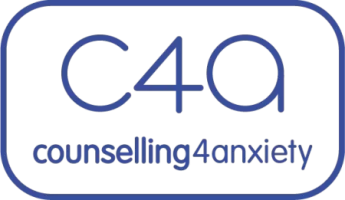"I really keep having to ask for re-assurance" said Ellie in the counselling session with me.
"I just need that re-assurance and I need to know that things will be o.k. It helps to reduce the sharp anxiety that I feel about certain things", she went onto say.
Ellie is not alone in wanting and seeking out re-assurance about specific thoughts, feelings or even images that come up in her mind and body. Seeking constant re-assurance is one of the behaviour patterns that people with an anxiety condition have. It can be classed as a form of self-soothing, reducing anxieties that come up in the mind of someone with this condition. This is a form of managing the anxiety that an intrusive thought or a fear may bring up in the mind of an individual. Re-assurance is therefore a form of defense, developed early in the life of a child as a coping strategy. However, much like any coping strategy, it may have been useful at the time, however, it does not seem to work as an individual gets older and it becomes restrictive for many people. They get bound into this same practice of re-assurance giving that reduces their ability to enjoy life or new experiences and it ultimately keeps them engaged in a cycle of re-assurance seeking, worry, doubt and high anxiety, that goes round the same loop again.
So what should be done by someone with an anxiety condition if they feel that they need ongoing re-assurance? As I said earlier, re-assurance seeking is a defensive behaviour aimed at overcoming a feeling of overwhelming distress. Well, the first thing, is to do the opposite. You may feel a real need for re-assurance as a thought may be causing you to ruminate with high and distressing anxiety levels. However, don't seek that re-assurance and let yourself sit with' and go through the anxiety process so that you feel so that you can get some distance between the desire for re-assurance and the thought naturally dropping in intensity as time passses.
One of the negative feedback loops set up early in anxiety conditions, is to try and seek re-assurance at the earliest moment. All this does is to re-enforce the belief that the thought is so overwhelming and dangerous, that such defensive tactics are essential. It can also be translated internally by an anxiety sufferer as a form of 'weakness' and with the subsequent impacts on the self-esteem of individuals dropping over time. In other words, an individual with anxiety and re-assurance seeking behaviours feels different and somewhat 'less than' others. This also further compounds the problem and the confidence of the individual.
So if re-assurance is your 'go to' place for safety seeking attention, the chances of overcoming a specific, thought or image are low because the re-assurance seeking behaviour entrenches the thought and gives it greater legitimacy. Also, to seek out re-assurance would undermine your true and authentic self and a belief that you are very likely, the master of your safety and security; that you have 'capital' in the decisions and choices that you make in your life.

